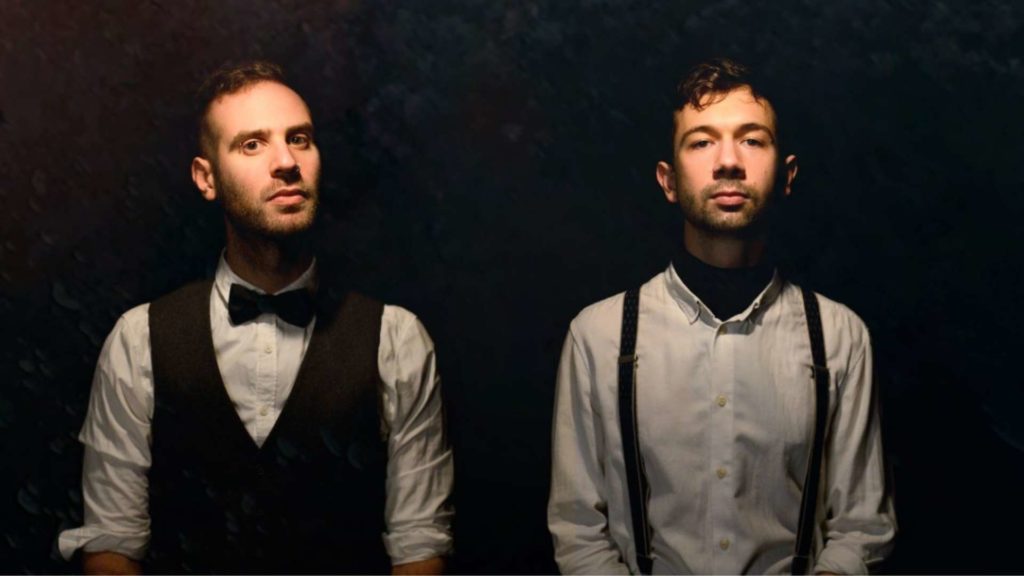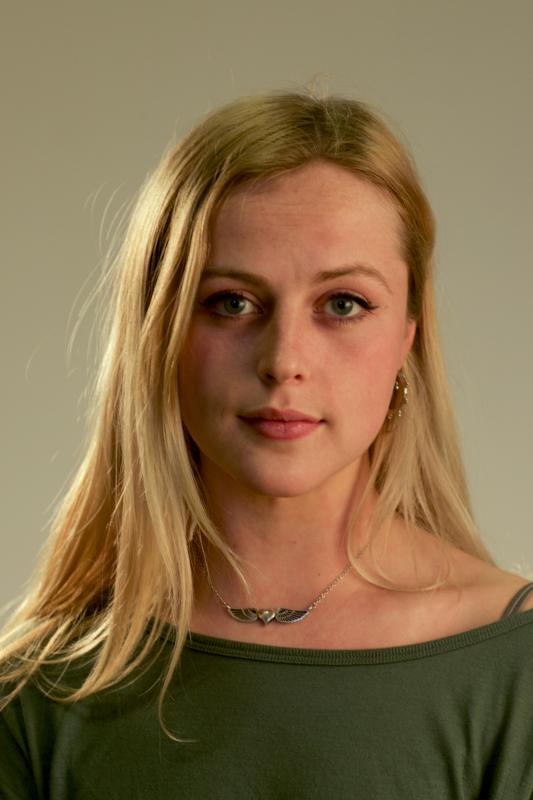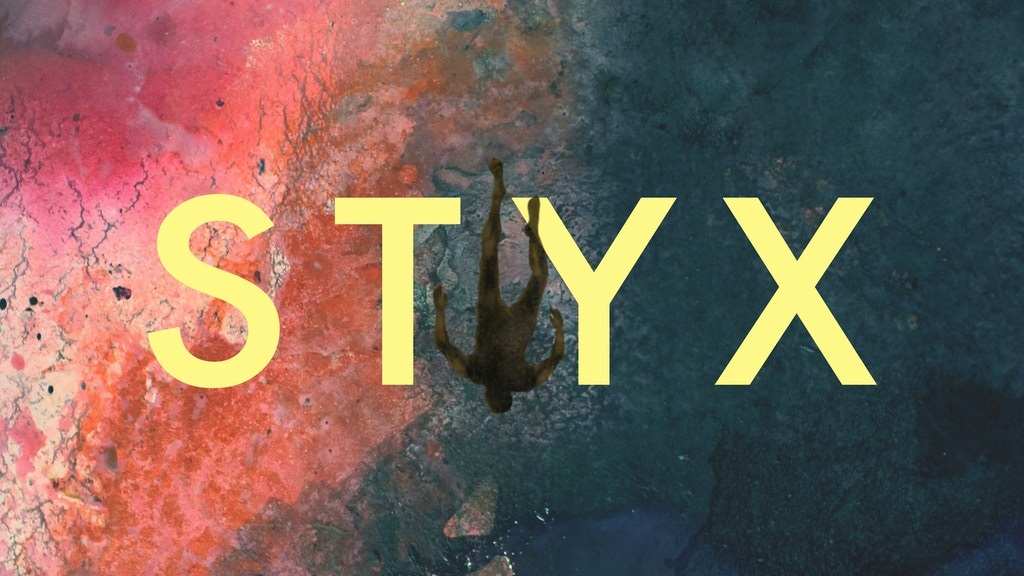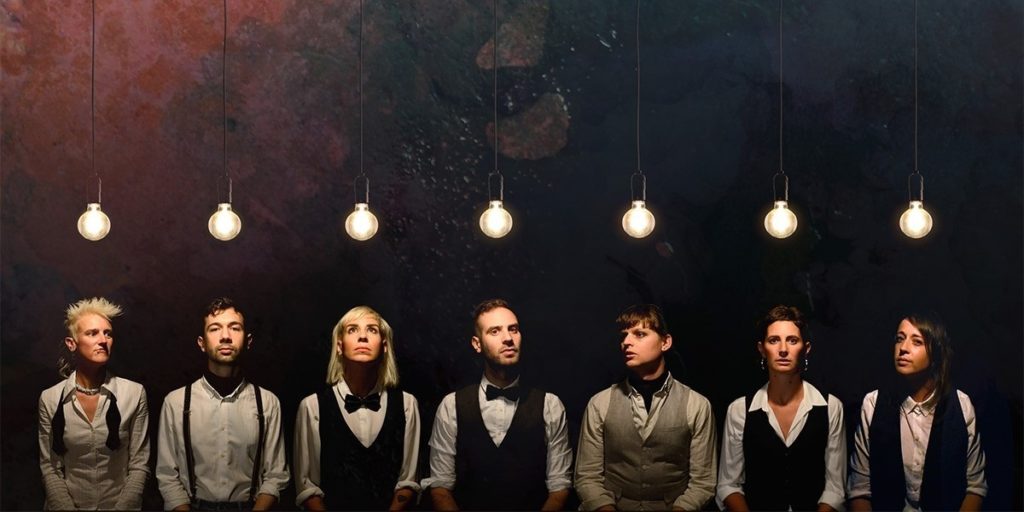
AS part of their At The Mill residency in Stillington, Second Body duo Max Barton and Jethro Cooke present Styx, their theatre-concert exploration of family, myth, memory loss and Max’s grandma, on Sunday and Tuesday.
In the wake of lockdown x 3, the show with Australian roots now comes with remixed music and bearing wounds wrought by 18 months of disrupted human connectivity.
“What does it mean to lose the memories that make us who we are?” they ask. “How can we continue to be ourselves when we are separated from our loved ones.”
CharlesHutchPress discovers the award-winning Max factor in a series of questions put to Mr Barton.
Introduce yourself, Max…
“I’m Max, a theatre maker, musician and climate activist, currently floating between various parts of the UK.”
Introduce Jethro….
“Jethro is a composer, sound designer and multi-instrumentalist based in Amsterdam.”
How did you meet?
“We first worked together on a piece called Boat by Kiran Millwood Hargrave, where we hung microphones around a little theatre in Balham, and then made a seascape out of the sounds made by our audience and actors.
“The connection was made through a designer called Shawn Soh who had done some collaborating with Guildhall [School of Music & Drama], where Jethro was training at the time.”
Explain the company name Second Body…
“We took the name Second Body from a book of the same title by Dr Daisy Hildyard, which is one of the best pieces of writing about climate change we’ve come across. It is built around the central idea that we have two bodies, one that’s made of flesh and blood and a second one which incorporates all the physical impact we’re having on the planet at any given moment.
“This metaphor interfaces really beautifully with the work we make. We play around a lot with scale, juxtaposing the personal against the structural in order to find emotional access into big topics.”
Why is the show called Styx?
“The story behind Styx is a bit more prosaic. We knew we were going to create a piece that incorporated music I’d written about Orpheus and Eurydice, and Styx is the river they cross to get into the underworld.
“We had to come up with a title before we knew exactly what the show was going to be about, and ‘Styx’ is a brilliant word, so we went with it.
“I then began recording interviews with my grandma, who had recently been diagnosed with Alzheimer’s disease, and discovered that she and my grandpa had started a club called the Orpheus Club in the early 1950s, and the show began to take form.
“Since then, I’ve always thought that Lethe – the underworld’s river of forgetfulness – would have been a better title, but sometimes a name just…sticks.”
How do you know Stillington theatre-maker Alexander Wright and how did this residency at At The Mill come about?
“We met Alex out in Perth during the Fringe World festival in 2019, when he too was doing a show about Orpheus alongside Phil Grainger. Naturally both companies went to check out the competition.
“We loved what each other did, and then the following year we shared two venues for our remount of Styx and our first sharing of the piece that would become Terra (playing here at the Mill on September 18) and Alex’s remount of Orpheus and its sister show Eurydice.

“This is where we met the other artist on this residency, Yoshika Colwell, who was performing in Eurydice at the time, and with whom we’re now making work. So, I guess we’ve gradually become absorbed into the Mill family.”
What opportunities does the residency afford you?
“This is a brilliant opportunity to share a whole array of our work at various different stages of development. It’ll be lovely to share the seasoned Styx with the people of Stillington and its environs, and very exciting to do the first public performance of the music from Terra, a concept album and show that we’ve been developing throughout lockdown.
“It’s also provided space for Yoshika Colwell and I to develop her piece Invisible Mending, which will have its first work-in-progress sharing on September16.
“There’s something very special about going away somewhere to work: the energy shift of a new space, particularly one as beautiful as this, is really palpable. On our last night here, on September 19, we’ll also be doing the first public performance of Yoshika’s EP, which we’ve been working on with her for the past year.”
What attracts you to the theatre-concert format and why?
“First off, it’s the only art form we’ve found that brings together all our interests and skills in one place: writing, storytelling, music and visuals.
“Placing live music at the centre of the work enables an emotional scale that is really releasing, without the earnestness that this might bring in a different format, and it’s really satisfying being able to juxtapose that against cleaner, more factual content, or autobiographical verbatim material.
“It’s also a place where we feel we can excel as performers of our own work, which gives us a more immediate access to the creative process.”
In what ways have you created a “completely new form” – as it says on the At The Mill website – of theatre-concert shows?
“Ha-ha, uh-oh, that’s our marketing spiel coming back to haunt us. Obviously, this is a liberal use of the word ‘completely’ – anything completely new would probably be by definition awful and unwatchable.
“BUT… I think what we’re doing that is kind of new is fusing diverse, original music and theatrical storytelling with science research. It means that the pieces flit between some pretty varied modes, sometimes feeling almost like a TED talk, other times like a gig, and sometimes very confessional and emotionally vulnerable.
“Maybe this is a way of distinguishing the work from the sort of thing people think of when they hear the words ‘gig theatre’.”
Styx offers an exploration of family and myth. What draws you to putting those two elements together and what draws you to Greek tragedies?
“I guess this fulfils that same desire to play with scale. When dealing with something as intimate as one’s own family, I think there’s a compulsion to find something epic to flow alongside and against it.

“I suppose that’s a tendency with auspicious precedent, as it sits in Arthur Miller’s wheelhouse – finding the tragedic within the mundane. There are few literary examples as ubiquitously borrowed from or known than the Greek tragedies, so they’re really useful archetypes to bring to bear on more personal work.”
Memory loss? Are we talking dementia here or the fading of memories as one grows older or even memory loss by choice to eradicate life’s duff days?
“We’re talking dementia, yes, but also the slow fading, and also the neuroscience behind the creation of memory. We’re looking at what it means to remember and questioning all our preconceptions about how the past functions in our present.”
How does your grandma come into the storyline?
“Her voice sits at the heart of the piece, as we play back pieces of my interviews with her. The show is built around her love story with my grandpa Michael, her battle with Alzheimer’s and the founding of the Orpheus club. She is, I suppose, the star of the show.”
What is the history of this production?
“We first performed it in Perth in 2019 with a seven-piece band and were then invited to perform it in Edinburgh and London later that year, with extra dates added at Streatham Space Project following the Edinburgh run.
“We then performed it again in Perth in 2020, now with an eight-piece band, in the intimidatingly large Girl’s School space. We were due to do a UK tour later that year before Covid struck.
“We then did a virtual tour, where we streamed to the social-media pages of various venues. This year, it’s been very strange to come back out on tour, in a much-changed version, which we’ve performed in London, Edinburgh, Coventry and Kent.”
How has Styx changed for these new performances, “now bearing wounds wrought by 18 months of disrupted human connectivity”?
“Well, by far the most apparent wound is the gap where six musicians used to be. The show is now a two-man affair, as the rest of the band is stuck in Australia for the time being.
“But also this time has been horrendous for people like my grandma, and that subtly makes itself known in the work.”
How have you re-mixed the music for the new version?
“Well, it used to be a big eight-piece sax-resplendent experience, so now we’ve completely reworked the music to retain the epicness as a duo.

“This has involved the use of fresh-pressed vinyl records – my grandparents ran a record store, so it’s like we’re duetting with them – and embracing electronics, in addition to bowed percussion and a much more multi-instrumental Jethro.”
Styx has achieved award-winning success and ten five-star reviews. What ingredients/chemistry/magic make for a hit show?
“It’s now 13, I believe! We’ve won one award, and been shortlisted for two, including the Total Theatre Award, which was a massive honour. Oh man, I don’t know. I guess you’ve gotta just make stuff that feels true to you, and hopefully that will chime for some other people too, and if you’re lucky the plaudits come.”
One final question prompted by Styx: how can we continue to be ourselves when we are separated from our loved ones?
“I’m not sure we can. Part of the message of the show is that we are what we are right now, not some consistent narrativised self that spans our whole life.
“This is a way of finding hope in the loss of memories, and finding value in the interactions that you can still have with loved ones that are no longer cognitively healthy.
“But this last 18 months or so has wrought incredible damage on people in those positions. And that needs some heavy recognition.”
Residency At The Mill presents Second Body in Styx at Stillington Mill, near York, on September 12 and 14, 8pm, followed by Terra, music from a new climate change theatre-concert in development, September 18, 8pm.
In between, Yoshika Colwell performs Invisible Mending on September 16, 8pm, and her new EP in concert by Yoshika & Friends on September 19, 8pm. Box office: tickettailor.com/events/atthemill.
INVISIBLE MENDING: A work in progress exploring creativity, knitting, the strange journey of grief, and the transcendent act of swimming in the sea. Text, music, and performance by University of York graduate Yoshika Colwell. Directed by Max Barton.
TERRA: Marking the debut of Slowstepper, Max Barton and Jethro Cooke’s new experimental multi-media music outfit, the climate-change concept album Terra will have its first public sharing at Stillington.
YOSHIKA & FRIENDS: A first public performance of the epic soul-searching songs of 22-year-old Yoshi’s debut solo EP will be complemented by performances by Slowstepper and other acts.
